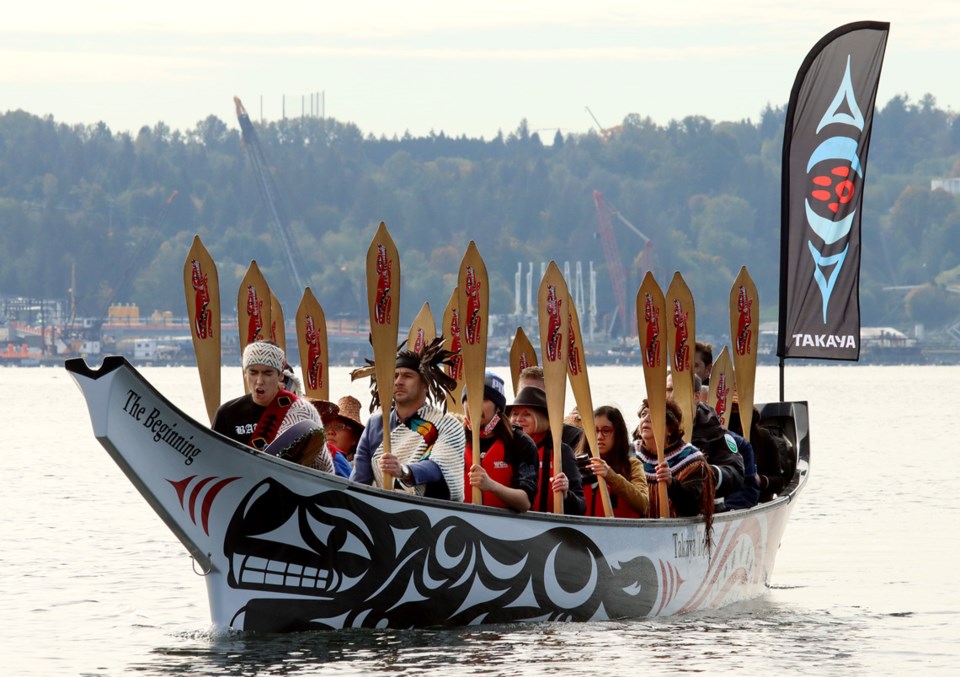Is Indian Arm still an appropriate name for the long fjord that runs from Burrard Inlet past Belcarra?
On Tuesday (Sept. 27), Port Moody council voted to call upon the Vancouver Fraser Port Authority and other relevant levels of government to change it to one that better reflects the Indigenous origins of the area.
The proposal to change the name was initially put forward by the Salish Sea Research and Education Society.
In an email to Mayor Rob Vagramov, the chair of the organization’s board of directors, Bill Laidler, said one of its goals is to work with local First Nations in establishing a research and education centre.
“We had a suggestion to see if there was community support to rename Indian Arm and pay homage to the Salish Sea.”
Vagramov said he’s shocked the Indian Arm name is still in common usage.
“I can’t believe it’s still called that,” he said, adding preliminary discussions he’s had with the port authority indicate the federal agency that’s responsible for the lands and waters that comprise the Port of Vancouver is open to the idea.
According to the BC Geographical Names office, Indian Arm was first identified by the Geographic Board of Canada in 1924.
Previously it had been labelled North Arm on maps and charts derived from surveys conducted by Captain George Henry Richards in 1859–60.
A letter sent in 1921 from a B.C. member of the Geographic Board of Canada recommended the North Arm name be changed “to a definitive distinctive name instead of a merely descriptive one.”
The letter went on to say Vancouver harbour commissioners suggested Indian Arm would be appropriate as the river that flows into the fjord’s north end was historically and locally known as Indian River even though its official name until 1921 was Meslilloet River as its waters originate from Mesililloet Mountain, the nearest glacial peak to Vancouver.
In February 2021, Port Moody council approved the creation of a task force comprised of Indigenous, First Nations, Inuit and Métis community members to review the city’s various reconciliation efforts, including a review of street names that honour pioneers who were involved in the colonisation of the region’s first inhabitants.
Earlier this year it agreed to begin working with neighbouring cities and Indigenous communities to that got its title from Edgar Dewdney, a government official in the late 1800s who withheld food from Indigenous people to gain concession in treaty negotiations.
His policies were subsequently linked to the deaths of thousands of First Nations people in the Cypress Hills region of Saskatchewan.
Almost exactly a year ago, on Oct. 8, 2021, Metro Vancouver and the Tsleil-Waututh First Nation of Belcarra Regional Park to t蓹mt蓹míx史t蓹n/Belcarra Regional Park to better reflect its history as the site of the largest of the Tsleil-Waututh’s ancestral villages.
The new name means “the biggest place for all the people” in the h蓹n虛q虛蓹min虛蓹m虛 language.




